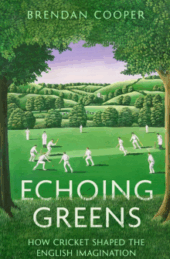Herstory: An Aspects of History Anthology
Women’s history is often being turned over, reevaluated, rediscovered, and retold as we understand further how stereotypes at the time heavily influenced how women were remembered. This is opening our eyes to forgotten figures or sectors of our past that have been overlooked. And this is where Herstory comes in – a gripping collection of essays, interviews, and stories that reclaim women’s place in history, as well as celebrating the minds of the talented female historians, lecturers, and journalists behind the words. Herstory not only showcases women’s contributions to history but also acknowledges the struggles of recognition and representation that they face.
The collection brings together a diverse group of writers from different parts of the world and career paths, creating a well-rounded and diverse perspective. A major theme that is touched upon is female empowerment in war and leadership – Margaret MacMillan’s chapter Five Questions on War discusses the female leaders who took their countries to war, such as Margaret Thatcher and Elizabeth, challenging the concept that warfare is a male domain. The overlooked roles of women in history are also examined. From Invisible Spies by Helen Fry, who educates us how women impressively coded messages in their knitting during wartime, to The Empress and the Pandemic by Lucy Ward, which hints at modern-day parallels between Catherine the Great’s inoculation efforts and fears surrounding COVID-19.
Women reclaiming their narratives is another recurring theme. Antonia Fraser’s interview discusses how Caroline Lamb was reduced to sexist tropes, while Cecily Nevile: Recovering a 15th Century Matriarch by Annie Garthwaite critiques how history often vilifies or erases influential women. These challenges are not only faced by our ladies of the past but also our women historians and writers, as seen by Bettany Hughes’s experiences of being dismissed in her career due to gendered stereotypes.
Fictional pieces like A Book of Hours by Elizabeth Buchan, connect past and present by exploring themes of grief, divorce, and resilience. Stories of maternal fear (Elisabeth de Valois and the Mother Who Made Her Queen), love, and loss (Tainted Love) further highlight the deeply personal and impactful historical narratives. This makes Herstory doubtlessly relatable, as these universal emotions are something that all women can emphasise to no matter when they lived. Suddenly, the icons in these pieces of writing don’t feel so far away.
Herstory has many assets. The book offers diverse perspectives, ranging from royal figures such as Henrietta Maria to the intelligence work of females in WWII. This ensures that the reader can see the multitude of ways that women can shape history. Additionally, Herstory celebrates the achievements of its contributors, such as Fraser winning the Wolfson History Prize and Daisy Dunn receiving the Classical Association Prize.
We dive into historical injustices, as many of the essays highlight how history has been misrepresented or even ignored, in such cases such as Mary Wortley Montagu and the Anti-Female Bias, showing the vital necessity of reevaluating historical records. Once again, Herstory shines a light on the universal experience of women throughout history – as we learn that Mary Montagu’s groundbreaking work with inoculation was overshadowed by commentary on her beauty, we realise that so too are modern women, from actors to musicians to historians, often reduced to headlines about their appearance rather than achievements. The past may be behind us, but its biases still echo in the present.
Herstory is an excellent cocktail of fiction, non-fiction, essays, interviews, and creative pieces, bringing history alive in a way that keeps the reader engaged. Its strength lies not only in its focus on overlooked women but also in its wide-ranging relevance – featuring topics beyond gender, such as espionage and historical figures like Otto von Bismarck, all explored through the expertise of female authors. This breadth of subject matter showcases women excelling in their fields, proving that history is not just being rewritten but expanded.
As Miranda Malins states in her introduction, Herstory ensures that “the future of history is assured.” This book is more than a collection of essays – it is a necessary testament to the spirit, intelligence, and impact of women throughout history, both as subjects and storytellers. Reevaluating the past not only corrects long-standing misrepresentations but also highlights the ongoing struggles and triumphs of women today. The book’s breadth of topics, spanning literary icons to political powerhouses, warrants that history is not just retold but expanded. This collection is essential reading for anyone who seeks a fuller, richer understanding of the past and recognition of the women who shaped it.
Herstory is the latest Aspects of History anthology, and is available now.






